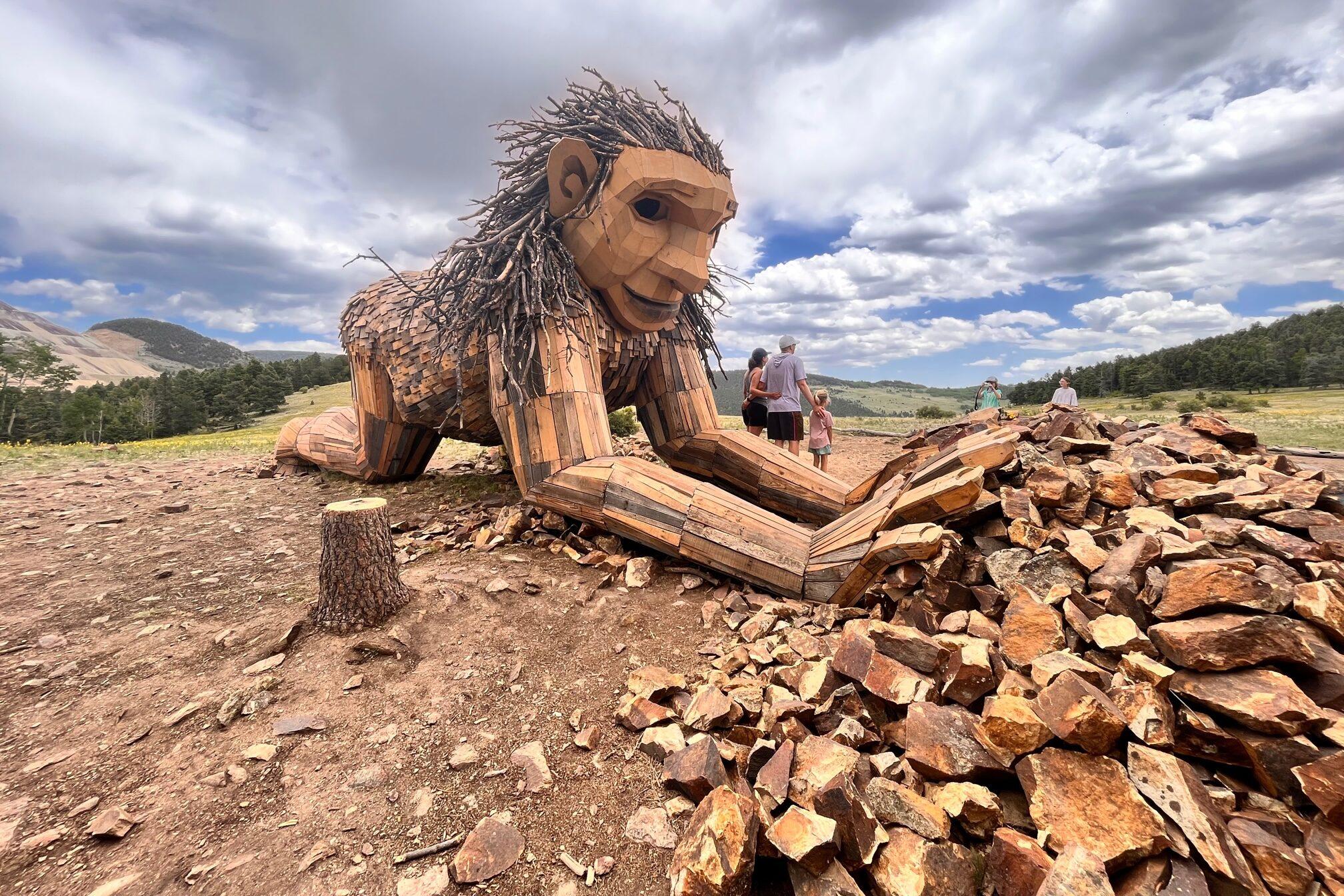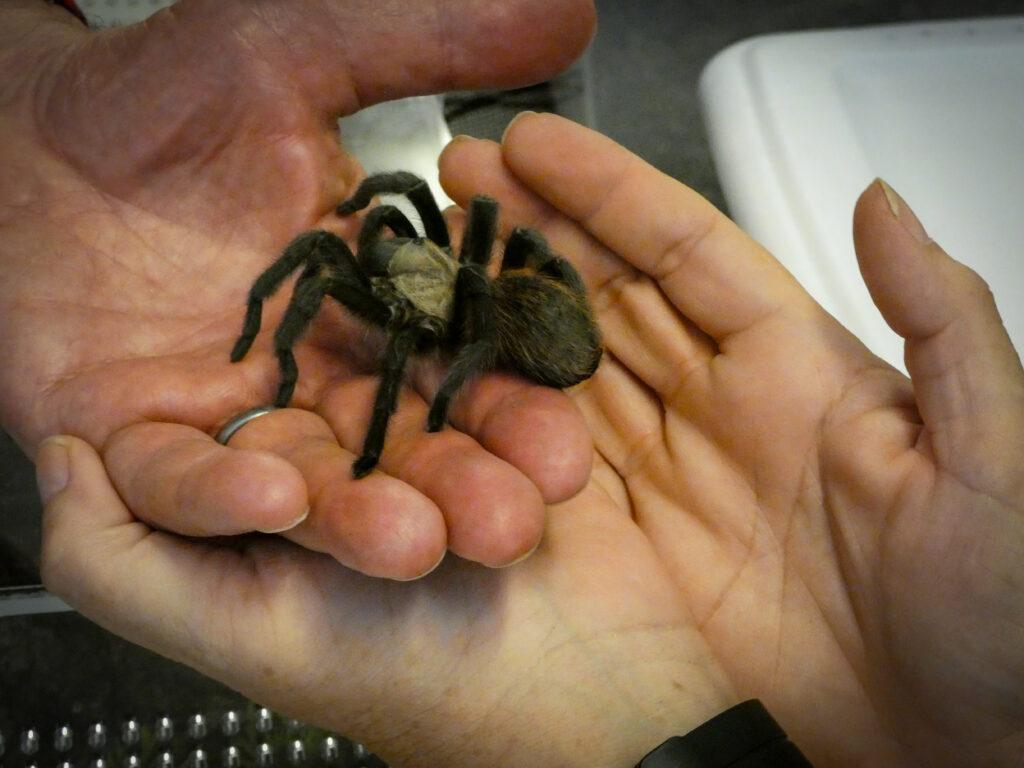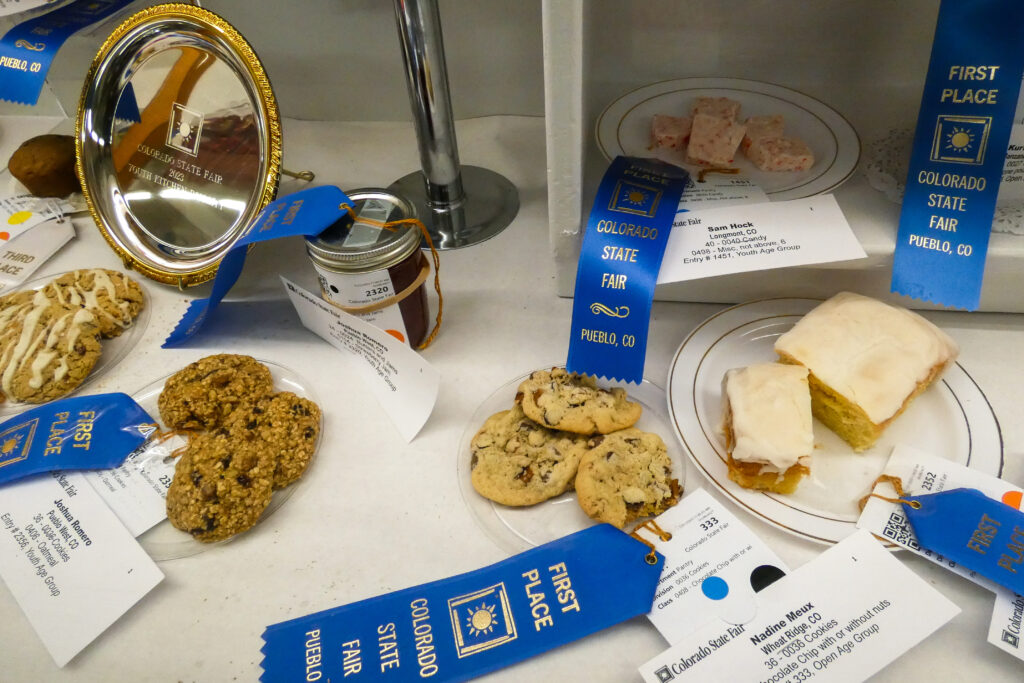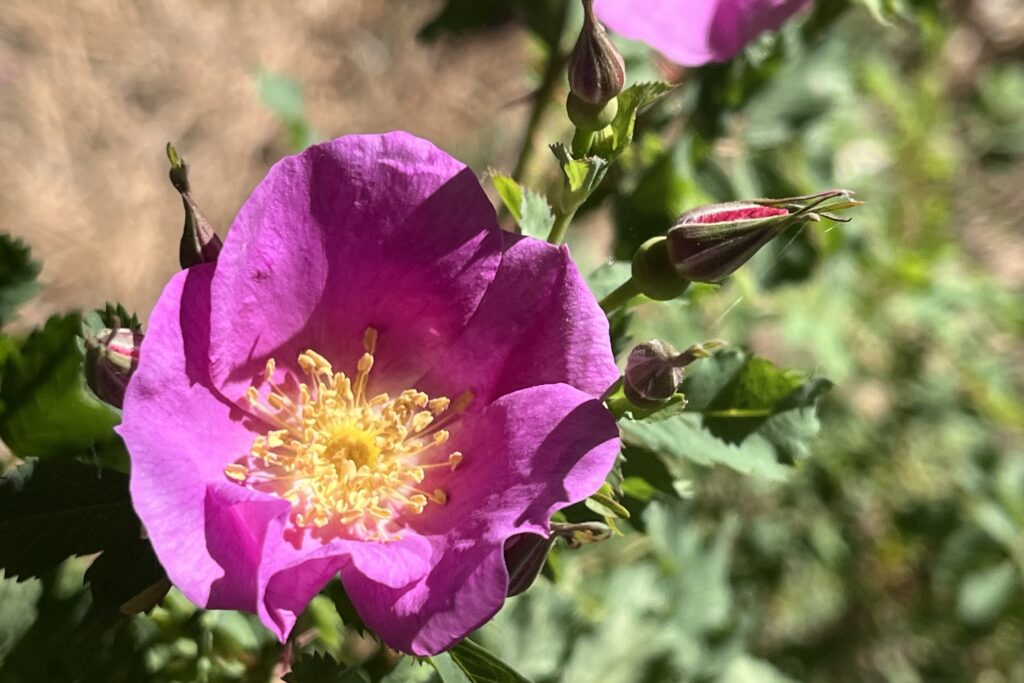
We’re celebrating Southern Colorado today, July 19, as a nod to the 719 area code that is widely used throughout the region. We never need an excuse to honor the people, places and things that make Southern Colorado so special, but today felt as good a day as any.
Below, find a selection of stories recently told by our Southern Colorado reporters.
And if you want to read or hear what your neighbors love about the region you can find that here. Looking for some little known facts about Southern Colorado? We’ve got you covered here. Lastly, test out how well you know Southern Colorado by filling out our 719 Day bingo card here!
A newly identified fossil found east of Colorado Springs
Militocodon lydae. That’s the scientific name for an animal whose skull and jaw fragments were found in Corral Bluffs Open Space in 2019 and 2021. A new study said the small, chinchilla-sized omnivore belonged to a group of mammals that eventually gave rise to all hoofed mammals. It has revealed new information about life on Earth after the mass extinction of dinosaurs.
The tarantulas of La Junta

In the cactus-studded grasslands south of La Junta, hundreds of tarantulas are known to crawl about as part of a fall migration. Their purpose? To mate. The city of 7,300 embraces their 8-legged friends by throwing an annual tarantula festival. Yes, you can even pet a real life tarantula.
Read more about the big hairy spiders here.
The Spanish Peaks: A geological puzzle
Geographically the two distinctive summits known as the Spanish Peaks on the horizon west of Walsenburg are part of the Rocky Mountains. But geologically, they’re different. They weren’t created by movement of the earth’s crust. Instead, they were formed by volcanic activity deep underground around 24 million years ago.
Read about researchers' efforts to uncover landscapes that are millions of years old here.
Exploring the history of the region’s early founders through….trash!
Colorado Springs’ founder William Jackson Palmer was a Civil War general and railroad tycoon. A few years back, archeologists uncovered artifacts linked to him during a dig at Garden of the Gods. They found oyster shells, cufflinks and more.
Check out the photo gallery here.
Judging the blue ribbon winners of the Colorado State Fair

Pies, jams, cakes and cookies. These are just some of the goodies that are part of the pantry competition during the annual Colorado State Fair in Pueblo. It’s a chance for home cooks to prove their kitchen prowess and vie for the ultimate award: a blue ribbon.
Read about the competitors at last year’s fair and the judges who make the ultimate decisions here.
Coffins and pallbearers off to the races
In Manitou Springs, it has become a tradition every fall for locals to dress up in costumes and ride decorated coffins down a city street. Called the Emma Crawford Coffin Races, this annual event remembers a Manitou resident in the late 1800s whose remains famously slid down Red Mountain.
Read about the nearly 30-year-old tradition here.
A chance to hike in to and stay at a 140-year-old cabin
The Duncan Cabin — estimated to have been completed in 1880 — stands as the lone remaining structure of the town of Duncan, population — at one time — 250. It’s named after John Duncan, a gold miner during the Gold Rush. Last year, the U.S. Forest Service opened the cabin up for public rental. Those willing to take on the four-mile hike to get there will be treated to a view of the San Luis Valley sagebrush plain along the sandy trail.
Read more about the cabin, the town and its namesake here.
What do you call people from Colorado Springs?
Residents of Denver are called Denverites. People from Pueblo, Puebloans. And informally, those from Manitou Springs might be called Manitoids.
And while the city has dubbed itself "Olympic City U.S.A.," it's not quite the same. If you've ever wondered what the demonym is for residents of Colorado Springs, you're not alone.
The troll of Victor
Her name is Rita and she's on a mission to inspire people to think differently about their waste. At least that's the goal of her creator, Danish recycle artist Thomas Dambo. She was installed in the hills of Victor and joins her brethren Isak as the only two trolls in Colorado.
Climbing the Manitou Incline for two
Climbing the Manitou Incline is an impressive feat in and of itself but a Colorado Springs woman became part of the “1,000 Club” — hiking the steps 1,000 times in 365 days – for the second time last year while pregnant. On her last hike up she even revealed the gender of her baby.
Stemming from a dark chapter, these roses are now blooming

Clippings from a rose bush discovered at Amache, the Japanese American prison camp on Colorado’s southeastern plains, were transported to Denver Botanic Gardens in 2021. Earlier this year, the bright pink flowers unfurled. “The delicate pink roses are bittersweet, serving as a metaphor for the resilience of nature and humankind and also a sad reminder of this very dark part of Colorado’s history,” said a Gardens spokesperson at the time.
Read about the flowers' profound timing and meaning here.
- The Great Chile Contest: An Earthly Terroir
- Take a look inside the Friar’s Fork & Sanctuary, the Alamosa restaurant on the shortlist for a coveted James Beard Award
- Pueblo’s Old Bojon Town Celebrates Heritage; Eligible for Historic District Designation
- Lost Glory: The Story Of Pueblo’s Once-Great Mineral Palace









